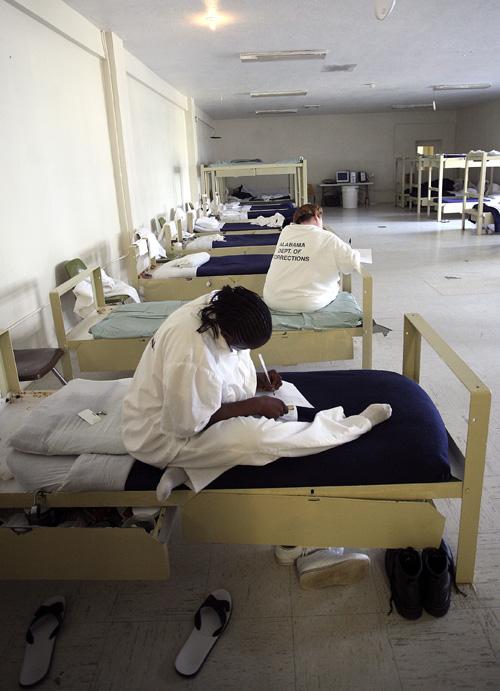Alabama still bars prisoners with HIV from work release
Inmates at Julia Tutwiler Prison for Women pass the time in the HIV ward in Wetumpka, Ala., on March 17. Alabama is the only state that bars prisoners with the AIDS virus from participating in work release programs. Jamie Martin, The Associated Press
March 25, 2008
MONTGOMERY, Ala. – Prison inmate Kathryn Canty seems like a prime candidate for work release: good behavior, less than three years left to serve and an accounting degree along with vocational training.
But she also has HIV.
And inmate advocates say Alabama is the only state that bars prisoners with the AIDS virus from participating in work release.
“I’m a worker,” said Canty, who finishes her 4«-year sentence for forgery and theft next month. “Work release would have been a great help for me to catch up with technology as well as saving money to get back on my feet.”
Work release is the closest thing to freedom for prisoners in Alabama, allowing select inmates to hold jobs on the outside, earn money and wear street clothes. They typically work at blue-collar jobs during the day and return to prison at night.
Get The Daily Illini in your inbox!
Alabama Corrections Department officials said HIV-infected inmates are barred because of a 2004 settlement under which the prison system agreed to watch such prisoners take their AIDS pills and make sure they are eating properly, too.
Such close monitoring would be impossible on the outside, according to the department.
Also, Ruth Naglich, the department’s associate commissioner of health services, said allowing inmates with HIV to work on the outside could expose them to illnesses and spread the AIDS virus.







